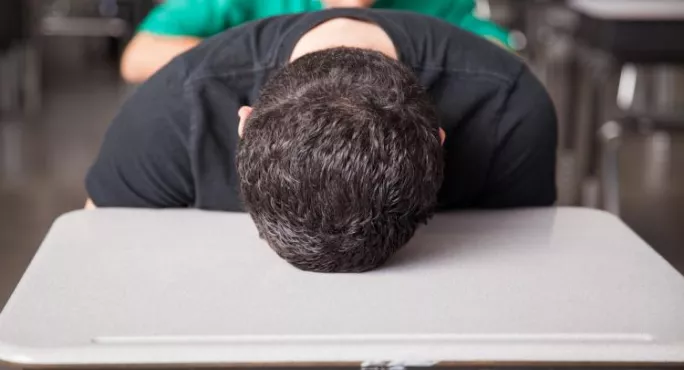The Association of Colleges (AoC) has called for more research on different approaches to colleges organising their timetables, after a London sixth-form college announced plans to put back its start time.
From September, students at Sir George Monoux College will start classes at 10am, instead of 9am. The change at Sir George Monoux was part of a new approach to the structure of the college day which, according to principal David Vasse, should suit the way the teenage brain functions.
The new structure has also been designed to accommodate learners’ commitments outside college. Instead of running classes lasting for one or two hours, students will be taught in two blocks: one three-hour session in the morning, and another after lunch.
Within each of the sessions, lecturers are given the discretion to build in a total of 30 minutes of breaks as they see fit. This will allow students to have time to reflect on their learning, said Mr Vasse. It also means that students will be required to be at college for at least half a day - eradicating instances of learners being required to attend college for just a single class.
‘Match-fit for the lesson’
“It is about changing the shape of our day,” Mr Vasse explained. “One major factor in this is teenage sleep patterns and the benefits for teenagers of a later start. Early is just not where they produce their best work.” The later start, Vasse added, would allow students to start the day “with a sense of being match-fit for the lesson and working at the top of their game”.
Another post-16 provider that has introduced an unorthodox timetabling structure is Portsmouth College. While the college opens to students at 7.30am, the first class doesn’t start until 10am. This lasts for three hours, followed by a two-hour session in the afternoon.
According to principal Steve Frampton, the move has been an unmitigated success. “We have grown from 900 to 1,600 [students over the last four years] against a demographic decline,” Mr Frampton said. “Attendance has gone up and the results have improved.”
David Corke, the AoC’s director of education and skills policy, said: “Some colleges are investigating changing the college day and timetable to support learning across their student base. It would be interesting to see further studies to see how this might work across other institutions.”
Late starts: what does the research say?
To date, academic research on the impact of late starts has been inconclusive. A report published in December, based on research carried out in North Carolina, concluded that pushing back school start times could help teenagers to make almost a year’s extra progress. However, research published in March by academics from Surrey University and Harvard Medical School argued that delaying school start times would simply cause most teenagers’ internal clocks to drift later, and within a matter of weeks they would find it just as hard to get out of bed for the later start time.
This is an edited version of an article in the 19 May edition of Tes. Subscribers can read the full story here. To subscribe, click here. To download the digital edition, Android users can click here and iOS users can click here. Your new-look Tes magazine is available at all good newsagents.
Want to keep up with the latest education news and opinion? Follow Tes FE News on Twitter, like us on Facebook and follow us on LinkedIn




